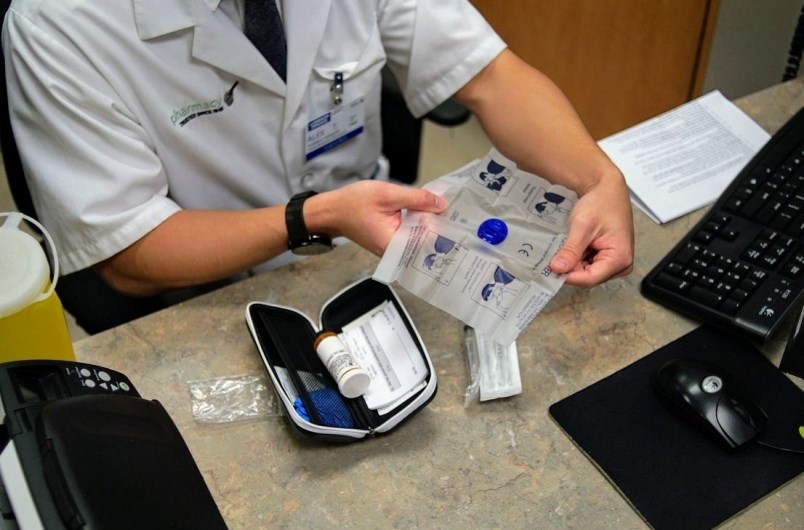As the opioid epidemic continues to impact communities at all levels, one familiar organization has been working for over a year to train individuals in the use and distribution of naloxone kits.
St. John Ambulance has been working with Guelph resident Bang Ly leading the way as the writer of the curriculum from the St. John Ambulance Opioid Poisoning Response Training program and the national curriculum lead for the St. John Ambulance.
Ly said the curriculum, which deals with opioid poisoning and the proper use of the naloxone kits, was based primarily on personal experiences he has had over the last several years working as a social worker.
“I based a lot of the curriculum on the experiences I have had in the city and also Kitchener-Waterloo as my career as a social worker,” said Ly. "Every person that I have had to administer naloxone on I remember their name, remember their faces and know the names and faces of everyone who has died in my arms. That’s the stuff that fuels this curriculum and now we teach it across the country.”
Data from the St. John Ambulance Canada Opioid Poisoning Response Training shows between December 2020 and December 2021 there were 305 community-based organizations that took the training, involving 3,099 front-line staff.
Of those trained, 89 per cent said they had the willingness to respond to an opioid poisoning with 96 per cent of trainees saying they would recommend the program to others.
“Specifically with our training, I wrote this thing specifically to overcome a lot of the barriers that people have with the standard type of training you would get at a pharmacy,” said Ly.
He added that it wasn’t an attempt to knock the profession of those working in a pharmacy, but rather a way to utilize the in-depth knowledge he has acquired over years of working in the community.
“I wrote this curriculum specifically for people working on the front lines and I am currently building a curriculum right now for caregivers for those who use drugs, for the family members and what kinds of supports are there for them,” said Ly.
The curriculum provides people with the signs and symptoms of opioid poisoning, however, Ly broke down the complicating factors involved with the stigma around opioid users and what to look for when you detect a potential opioid poisoning.
Kevin McGowan, who manages the program, said last Friday the program reached a milestone of 250 classes and 9,000 nasal naloxone kits distributed across the county.
“It’s going really well in terms of doing a lot of outreach to lots of different grassroots organizations from coast to coast to coast and now we’re actually branching out,” said McGowan.
Those interested in taking the training can visit the website here.
